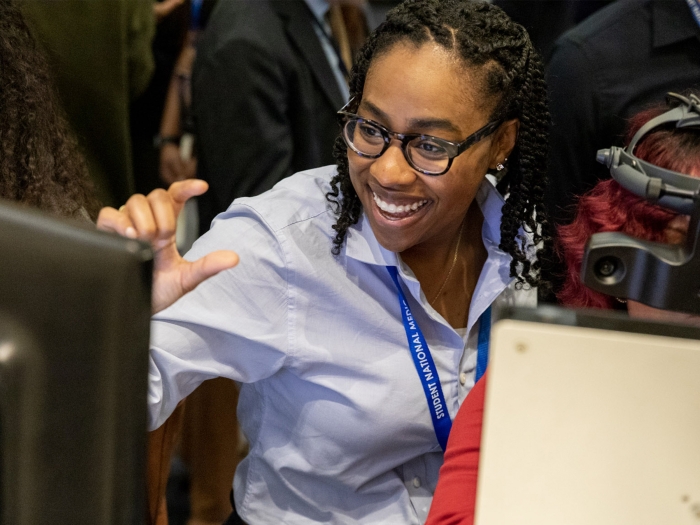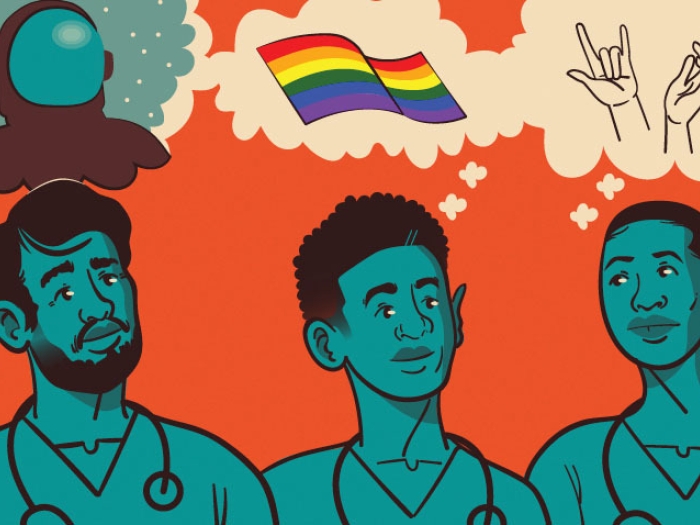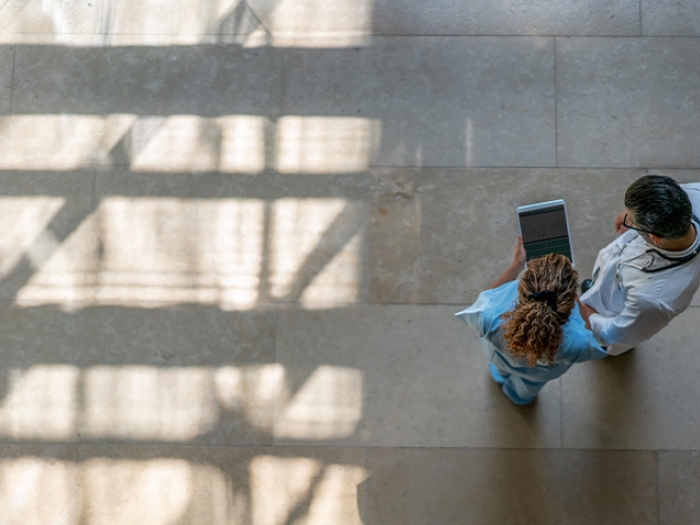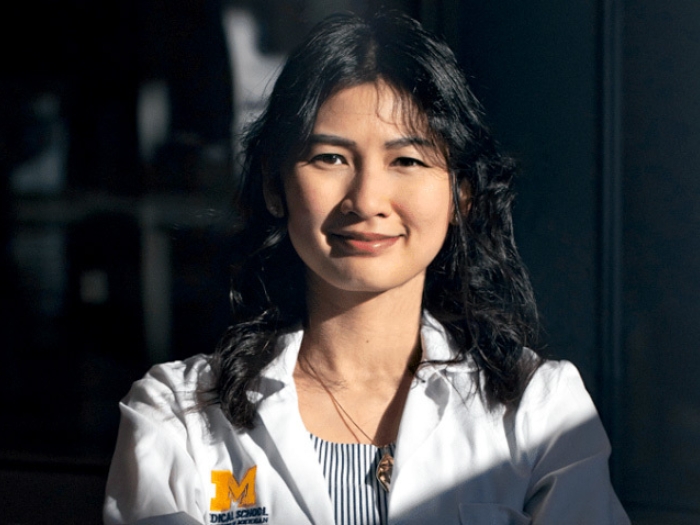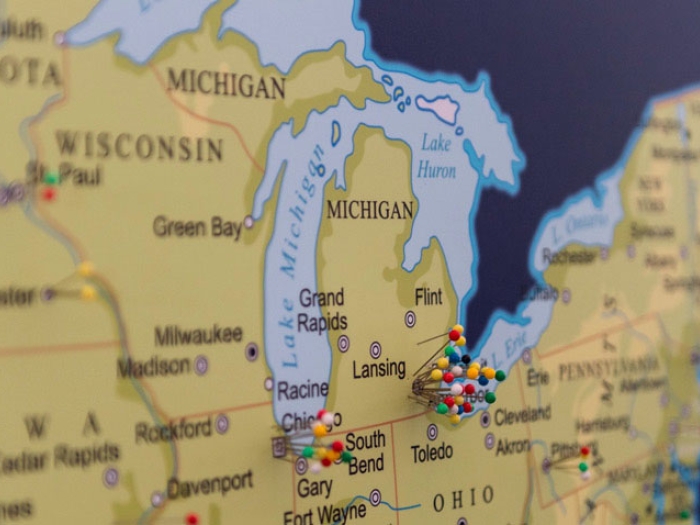The first year of medical school is a marathon, not a sprint. Based on her experience, a U-M student offers incoming M1s a road map for success.
7:00 AM
Author |

After finishing my first year of medical school, I realized I had come so far — but also knew that there was a lot left to learn.
MORE FROM THE LAB: Subscribe to our weekly newsletter
I noticed the change in small ways, such as through my position with the University of Michigan Student-Run Free Clinic, where I now had a better idea of the questions I needed to ask patients to get necessary medical information from them.
At the same time, I became more attuned to when I need to contact the medical director about a particularly concerning condition.
I have also grown as a person because it turns out that medical school is about more than learning everything in a textbook.
Thus, I decided to share 10 lessons that I learned during my first year of med school. (I promise that being succinct is still not one of them, but I'm working on it, so hang in there!)
Find your people.
A support system is absolutely and unequivocally what will get you through medical school, so it's important to have a good one. Everyone's network looks different, but they are important nonetheless.
Mine is a mix of family, friends from home, college and grad school, my friends/study group at school, the members of the Black Medical Association, and mentors from various stages of my education. These are the people I talk to when I'm having my best and worst days, and they're the ones who have gotten me through the year.
Everyone studies differently — and your methods may change.
This one is pretty self-explanatory, but I, like everyone else, came in with a study method that worked for me in undergrad. Unfortunately, that method did NOT work in medical school. It took some trial and error, but I came up with a method I love and that works for me. So now I'll stick with it until it no longer works.
Motivation is everything.
I was fortunate enough to begin med school with a pretty good picture of what motivates me based on my background and many of the activities I participated in during undergrad and graduate school.
SEE ALSO: What the Michigan Med School Admissions Team Looks for on Applications
To put it succinctly, health inequity drives me. The fact that some of the populations that I've worked with are never given a fighting chance due to disparities in health care and education is what keeps me awake at night. It's what pushes me out of bed in the morning and what determines the activities I'm involved with.
Motivation can come from many different sources and is very person-specific. Find what motivates you and hang on to it because some days will be difficult, and you'll definitely need the reminder of why you came to medical school in the first place.
There's no shame in asking for help.
It's not only OK — it's crucial. However, so many med students went through school always understanding everything and never really having to ask for help, but there are times in medical school when you just don't know. At these times, it's so important to ask for help, whether from classmates, faculty or others.
This will be especially important later on the wards because patients can really suffer if you don't know what you're doing and you don't ask for help. It may take some humility at first, but you may be surprised that people are often more than happy to teach you and are often glad that you asked … not to mention that others often have the same issue but are afraid to ask.
Things won't always go as planned. That's OK.
So many of us started med school with this grand plan and the idea that everything would go perfectly. False. There are bumps along the road, and flexibility is an incredibly important trait to have as a physician (because illnesses almost never read the textbook).
SEE ALSO: From a Freshman Year 'F' to a Third-Year Medical Student
Last year, I learned that sometimes I could make the best study plan and it just wouldn't work out. Other times, I learned that I just needed a day off and I'd have to readjust my study plans for the rest of the week. Flexibility is key because stressing yourself out over things you can't control is definitely a waste of time (and you never want to waste time).

It's OK to try new things.
This one was a bit hard for me at first, and I don't think that's abnormal. How many times have we heard the phrase, "Humans are creatures of habit?" It's kind of true, but it turns out that we miss a lot if we stay inside our comfort zones all of the time.
In the past year, I've tried new things — like running a half-marathon, dancing in front of an audience and trying new restaurants, among many other things. Shaking things up keeps life interesting, and it has definitely led to some really fun experiences.
Stay humble.
When things are going well, it's so easy to become overconfident, but that can be really dangerous for the patients. I try to constantly remind myself of what a privilege it is to be here — and when I forget, I am lucky enough to have a group of people who remind me. Humility doesn't seem like a big deal, but it can save lives, not to mention your patients and the members of your team will appreciate it.
You're a person.
This may mean that sometimes you need a day off, so take a day off or push through until you can. There are also times that you'll have a really emotional encounter with a patient or something bad will happen in your life outside of medical school. At these times, it's so important to take care of yourself.
As much as I'd love to have the efficiency of a robot, that's not the case sometimes. However, I figure that the fact that I am aware that I'm still a person will make me a better physician down the road.
The sacrifice will be worth it.
Since I took two years between undergrad and medical school to go to grad school, many of my friends experienced at least the first couple of years of med school before I did. They had told me many times of the sacrifice involved, but it was easy to convince myself that they were exaggerating or just overly exhausted and complaining. It turns out that sometimes they were, but I also found there is, in fact, a lot of sacrifice involved in this process.
SEE ALSO: One Medical Student's Mission to Erase the Stigma of Depression
In a few short years, people will trust us with their lives; that's an incredible responsibility. Thus, there are sacrifices that we must make. For me, the hardest one has been not being able to see my family and friends as much as I'd like. However, I'm fortunate to have loved ones who are supportive of my pursuits and who understand that sometimes I won't be able to make it to events or that I may have to cancel plans. They, as well as I, know that this is temporary but necessary, and it will definitely be worth it on the other side.
There's nothing else in the world I'd rather do.
While I was still in undergrad, one of my advisers said that if there was anything else that I'd rather be doing in the world besides medicine, I should do it. After a lot of soul searching, I decided that the combination of public health and medicine was exactly what I wanted to do with the rest of my life. There was nothing else that could make me as happy or fulfilled, and that was when I knew this was the path I should take.
Throughout the year, this decision has been reaffirmed for me many times. Yes, there are some days where I question the decision, but I always know deep down that this is the right one and that I wouldn't be nearly as happy doing anything else. It's one of the best feelings I've experienced.
This article was originally published on Dose of Reality, the blog of the University of Michigan Medical School.
Please note some curriculum components mentioned in this article have been updated as part of the school's MD curriculum transformation. For the most up-to-date information, visit the UMMS website.

Explore a variety of health care news & stories by visiting the Health Lab home page for more articles.

Department of Communication at Michigan Medicine
Want top health & research news weekly? Sign up for Health Lab’s newsletters today!
